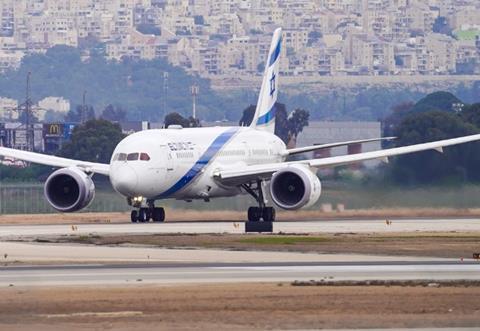Israeli flag-carrier El Al is seeking a meeting with representatives of the financial services and credit-card firm Isracard, after offering to acquire a 45% shareholding in the company.
El Al is offering to purchase shares through a private placement, its chief executive Dina Ben Tal Ganancia states in a communication to Isracard.
The airline’s offer values Isracard at 3.1 billion shekels ($822 million), which is above the market capitalisation of 2.8 billion shekels based on Isracard’s current share price.
El Al claims its offer provides greater financial value and opportunity for Isracard’s business development than rival bids for the company.
The airline already has a frequent-flyer programme and its own credit card, branded Fly Card.

Ganancia believes the investment, giving El Al a “stable controlling interest”, will create “great value” for Isracard as well as the airline’s shareholders.
Combining the business with El Al will create a “basis for innovation” and will provide Isracard with a “new horizon of dynamism, growth and innovation” as well as “very significant ability to develop activity in new markets”, the communication adds.
Isracard says it is the largest credit-card group in Israel – with about 4.5 million active cards – and operates with business and private customers. It claims a strong market share over competitors in the fields of issuance and clearing.
The company recently received an investment offer from the Israeli insurance firm Menora Mivtachim.
Ganancia’s communication points out that El Al’s owners have “proven themselves…as having high financial capacity, ability [and] vision”.
“Just as they turned El Al into an airline that operates according to the leading international standards, the controlling owners made it clear that they are committed to investing in [Isracard] and promoting its business activities in Israel and abroad,” it adds.
El Al says it wants to schedule a meeting with Isracard’s management to discuss the proposition, with a view to establishing a formal agreement – although it also says that a deal would be subject to customary regulatory approval.


























